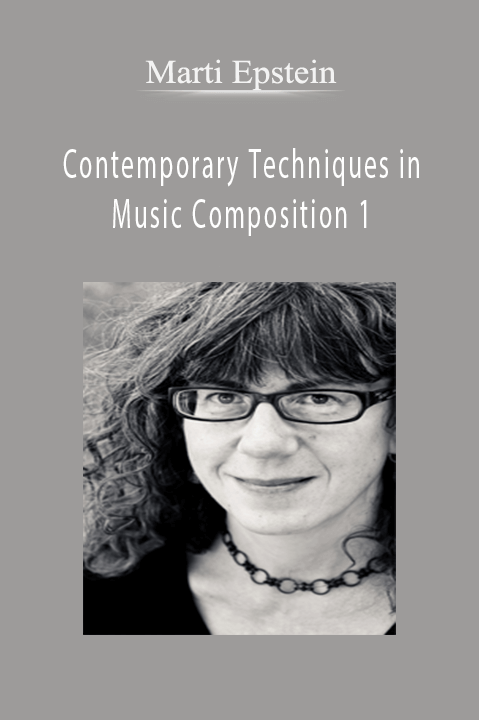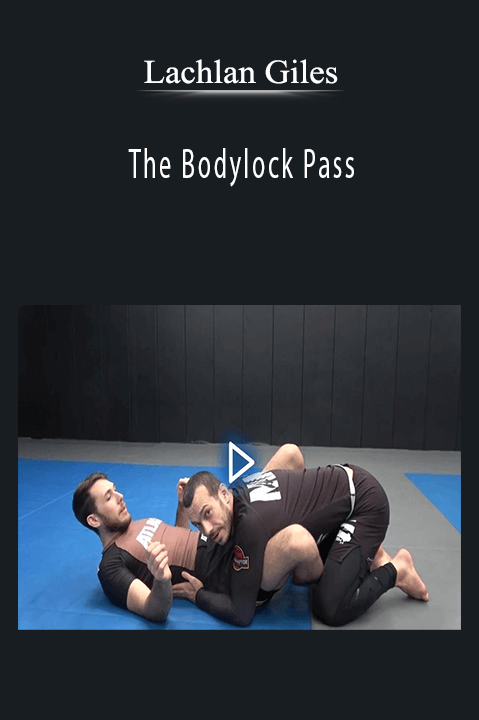Marti Epstein – Contemporary Techniques in Music Composition 1
Are you interested in developing and enriching your unique, compositional language? Through the study of modern twentieth century compositional techniques, this course will help you construct your own melodic, harmonic, and rhythmic language. Additionally, you will have an opportunity to explore extended techniques such as prepared piano, wind multiphonics, and found percussion. With the knowledge attained in this course, you will grow your own unique voice to write music for visual media, concerts, recitals, or personal enjoyment.
This music composition course begins by looking at new ways to think about organizing pitch, with a focus on melodic writing. Next, modern harmonic concepts are introduced, followed by new ideas about rhythm and form, and ending firmly in the mid-twentieth century with innovations in instrumental technique and acoustic sound production. Each topic is accompanied by an examination of musical examples by some of the giants of the twentieth century, including Arnold Schoenberg, Claude Debussy, Charles Ives, Igor Stravinsky, Edgard Varese, Bela Bartok, Henry Cowell, John Cage, Ruth Crawford, and Toru Takemitsu.
Through writing exercises, analysis, and observation, you’ll learn techniques within their historical context. Experimentation is encouraged and should always be your first priority when searching for your individual style. In addition to the exercises for each lesson, there are four larger projects in which you are expected to write a more substantial piece of music incorporating concepts that you have learned.
At the end of this music composition course, you will be able to:
- Compose using non-tonal scales such as whole tone, pentatonic, octatonic, and invented scales
- Create richer pitch material through experimenting with other modes and folk music
- Compose using interesting interval sets
- Begin to explore pre-serial techniques
- Experiment with using familiar harmonic structures like triads in new ways- non-functional harmony, new voicings, and triadic layering
- Compose using non-triadic harmonic structures like quartal and quintal harmony, chord clusters, and harmonies made from mixtures of different intervals
- Experiment with meter and rhythm
- Create their own formal structures, moving away from the traditional classical forms such as sonata, rounded binary, etc.
- Experiment with chance, indeterminacy, proportional notation and graphic scores
- Compose using both traditional and found percussion instruments
- Explore extended techniques for winds and strings
- Learn about the safest ways to prepare the strings of a piano
- Use these techniques to create a unique, individual compositional voice
Syllabus
Lesson 1: New Scales
Lesson 2: New Modes
Lesson 3: Interval Structures
Lesson 4: New Verticalities
Lesson 5: Other Vertical Intervallic Structures
Lesson 6: Harmonic Movement
Lesson 7: Rhythmic Devices
Lesson 8: Formal Devices
Lesson 9: Aleatory
Lesson 10: Percussion and Found Instruments
Lesson 11: Prepared Piano
Lesson 12: Other Extended Techniques
Requirements
Prerequisites and Course-Specific Requirements
Completion of Music Notation and Score Preparation Using Finale or Music Notation Using Sibelius and Music Theory and Composition 4 or equivalent knowledge and experience is required.
Required Textbook(s)
- None required
Software Requirements
- Notation Software (optional)
General Course Requirements
Below are the minimum requirements to access the course environment and participate in live chats. Please make sure to also check the Prerequisites and Course-Specific Requirements section above, and ensure your computer meets or exceeds the minimum system requirements for all software needed for your course.
Mac Users
- OS X 10.10 Yosemite or higher
PC Users
- Windows 7 or higher
All Users
- Latest version of Google Chrome
- Zoom meeting software (available in the course when joining your first chat)
- Webcam
- Speakers or headphones
- External or internal Microphone
- Broadband Internet connection
Instructors
Author & Instructor
Marti Epstein is a composer whose music has been performed by the San Francisco Symphony, the Radio Symphony Orchestra of Frankfurt, the Pro Arte Chamber Orchestra of Boston, Ensemble Modern, and members of the Boston Symphony. She has completed commissions for the Foxborough Musical Association, the Fromm Foundation, the Munich Biennale, the Iowa Brass Quintet, the CORE Ensemble, Pro Arte Chamber Orchestra, Longy School of Music, the Ludovico Ensemble, Guerilla Opera, the Radius Ensemble, and the Callithumpian Consort. In 2005, she was a recipient of a Massachusetts Cultural Council Grant. Marti has been a fellow at the Tanglewood Music Center (1986, 1988) and has been in residence at the MacDowell Colony (1998, 1999).
She also serves on the Steering Committee for the Boston Modern Orchestra Project Scoreboard and was Composer-in-Residence for the Radius Ensemble in 2009 and 2010. In November 2015, Marti released an album of original chamber music title Hypnagogia. She has recently completed commissions for the Diagenesis Duo, bassoonist Chris Watford, and Transient Canvas. Marti is a professor of Composition at Berklee College of Music and also teaches composition at Boston Conservatory.
Instructor
Gabriele Vanoni was born in Milan, Italy in 1980. He obtained two Bachelor’s degrees in Piano and Composition at Milan Conservatory, followed by a Ph.D. in Music Composition at Harvard University. His compositional interests range from acoustic music to live electronics. His works have been widely performed in Europe and the Americas, in venues such as Carnegie Hall, Biennale di Venezia, ManiFeste, Moscow Conservatory, June in Buffalo, IRCAM, NYU, BIT Teatergarasjen in Bergen, and Accademia Chigiana di Siena, among many others. Likewise, various soloists and ensembles have now been involved in performing his music, such as the Ensemble Intercontemporain, San Francisco Contemporary Music Players, Talea Ensemble, Moscow Studio for New Music Ensemble, Ensemble L’arsenale, Mario Caroli, Diotima Quartet, Les Cris de Paris, Nouvel Ensemble Moderne, and many more. Gabriele was also awarded several prizes and mentions in local and international competitions. In addition to his activity as a composer, he served as the artistic director and founder of Suggestioni, a festival of Italian music in the United States. He also holds a degree in Business for the Arts, Culture and Communication from Bocconi University.
After two years in Paris attending Cursus 1 and 2 at IRCAM, he moved back to the United States where he is currently an Assistant Chair in the composition department at Berklee College of Music. His recent commissions include a piece for the 2015 Universal Exposition in Milan (Nutrire La Musica) and a new piece for accordion and string orchestra.
What’s Next?
When taken for credit, Contemporary Techniques in Music Composition 1 can be applied towards these associated programs:
Associated Certificate Programs
- General Music Studies Professional Certificate
- General Music Studies Advanced Professional Certificate
Associated Degree Majors
- Bachelor’s Degree in Music Composition for Film, TV, and Games
- Bachelor’s Degree in Songwriting
Digital Download Marti Epstein – Contemporary Techniques in Music Composition 1 at Offimc.click Now!
Delivery Information
- Upon ordering the product, a delivery email with download instructions will be sent immediately to you so that you may download your files. If you log in (or create an account) prior to purchase you will also be able to access your downloads from your account dashboard.
- It is a digital download, so please download the order items and save them to your hard drive. In case the link is broken for any reason, please contact us and we will resend the new download link to you.
- If you don't receive the download link, please don’t worry about that. We will update and notify you as soon as possible from 8:00 AM – 8:00 PM (UTC+8).
- Please Contact Us if there are any further questions or concerns you may have. We are always happy to assist!








8 reviews for Contemporary Techniques in Music Composition 1 – Marti Epstein
There are no reviews yet.